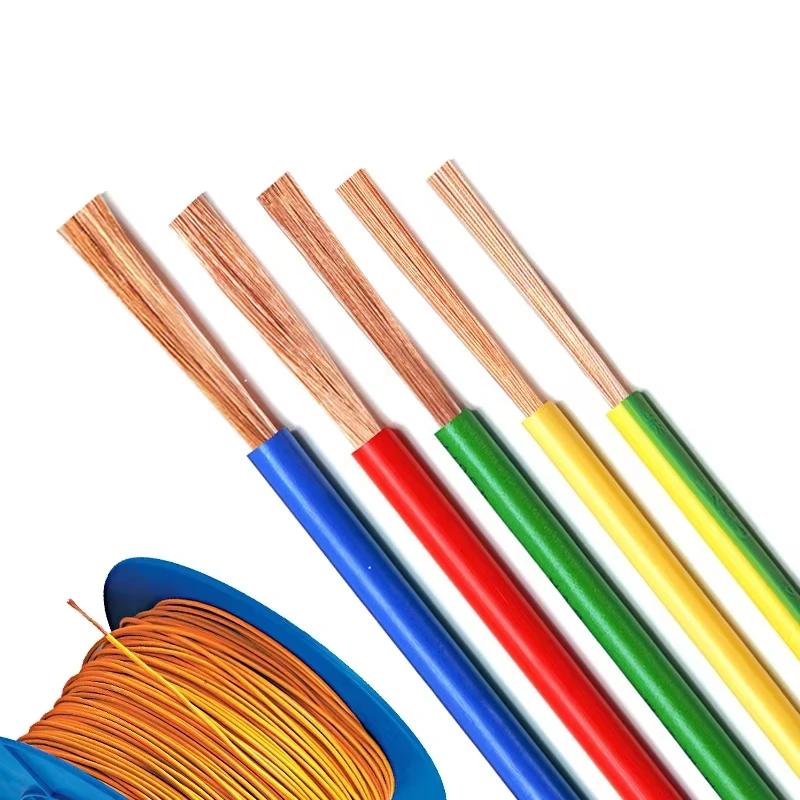
custom construction of pvc cable
Custom Construction of PVC Cable A Comprehensive Overview
In today's rapidly evolving technological landscape, the importance of high-quality cables cannot be overstated. One particularly versatile type is the PVC (Polyvinyl Chloride) cable, which is widely used in various applications ranging from electrical wiring to communication systems. Custom construction of PVC cables allows manufacturers to tailor the cables according to specific requirements, ensuring optimal performance and longevity. This article delves into the intricacies of custom PVC cable construction, its benefits, and its applications.
Understanding PVC Cable
PVC cables are predominantly made from polyvinyl chloride, a synthetic plastic polymer known for its durability, flexibility, and resistance to environmental factors. This makes PVC an ideal material for insulating and protecting electrical wires. Customizing PVC cables involves modifying various parameters such as size, conductor type, insulation thickness, and additional features to meet the distinct demands of different industries and applications.
Components of Custom PVC Cables
1. Conductors The choice of conductor material—typically copper or aluminum—greatly influences the cable's performance. Copper conductors offer excellent conductivity and are often preferred for high-performance applications, while aluminum is lighter and more cost-effective.
2. Insulation Thickness The thickness of the PVC insulation can significantly impact the cable’s protection against environmental elements, heat, and chemical exposure. Custom cables can be designed with varying insulation levels to suit specific usage conditions.
3. Jacketing The outer jacket of PVC cables serves as the first line of defense against physical and environmental threats. Depending on the application, manufacturers can customize the jacket color, texture, and resistance properties (such as UV and abrasion resistance).
4. Shielding For applications sensitive to electromagnetic interference (EMI), adding a shielding layer can ensure signal integrity. The type and configuration of shielding—whether foil, braid, or a combination—can be customized based on the intended environment and performance requirements.
5. Length and Configuration Custom cables can be produced in various lengths and configurations, including multi-core designs for complex installations. Tailoring the length ensures minimal waste and optimal performance for the specific application.
Benefits of Custom PVC Cable Construction
custom construction of pvc cable

1. Enhanced Performance Custom PVC cables can be engineered to meet exact specifications, leading to enhanced electrical performance, reduced signal loss, and increased efficiency.
2. Specific Application Suitability Different industries have unique requirements. Whether it’s for outdoor installations, high-voltage applications, or specific temperature ranges, custom cables can be designed to perform reliably under those conditions.
3. Cost-Effectiveness By customizing the cable to fit exact needs, businesses can avoid overspending on unnecessary features while also minimizing waste from excess material.
4. Durability and Longevity Customized design ensures the cable can withstand specific environmental challenges, resulting in a longer lifespan and reduced maintenance and replacement costs.
5. Compliance with Standards Custom PVC cables can be manufactured to meet industry-specific standards and regulations, ensuring they are fit for purpose without compromising safety or performance.
Applications of Custom PVC Cables
Custom PVC cables find extensive use across multiple sectors
- Electrical Power Distribution Used in residential, commercial, and industrial wiring. - Telecommunications Essential for data transmission and connectivity. - Automotive Industry Customized cables are vital for powering and controlling various electronic components. - Construction Used in building infrastructures, especially for temporary setups that require flexible wiring solutions.
Conclusion
Custom construction of PVC cables is invaluable in meeting the specific needs of diverse applications. By optimizing the design parameters, manufacturers can create cables that not only enhance performance and durability but also provide significant cost savings. As industries continue to evolve and demand smarter, more efficient solutions, the role of custom PVC cables will surely grow, establishing them as a foundational component of modern technological infrastructure. Whether for power distribution, communication, or specialized industrial purposes, investing in custom PVC cables is a decision that can lead to improved results and enhanced operational efficiency.
-
Reliable LIYCY Cable Solutions for Low and Medium Voltage ApplicationsNewsJul.14,2025
-
Premium Overhead Electrical Wire Solutions for Low and Medium Voltage ApplicationsNewsJul.14,2025
-
Innovative XLPE Electrical Cable Solutions for Modern Low and Medium Voltage NetworksNewsJul.14,2025
-
High-Quality Ethylene Propylene Rubber Cable – Durable EPDM Cable & 1.5 mm 3 Core OptionsNewsJul.14,2025
-
Exploring the Versatility of H1Z2Z2-K 1X4mm2 Cables in Modern ApplicationsNewsJul.14,2025
-
Uses of Construction WiresNewsJul.14,2025
-
Types of Neoprene CableNewsJul.14,2025














